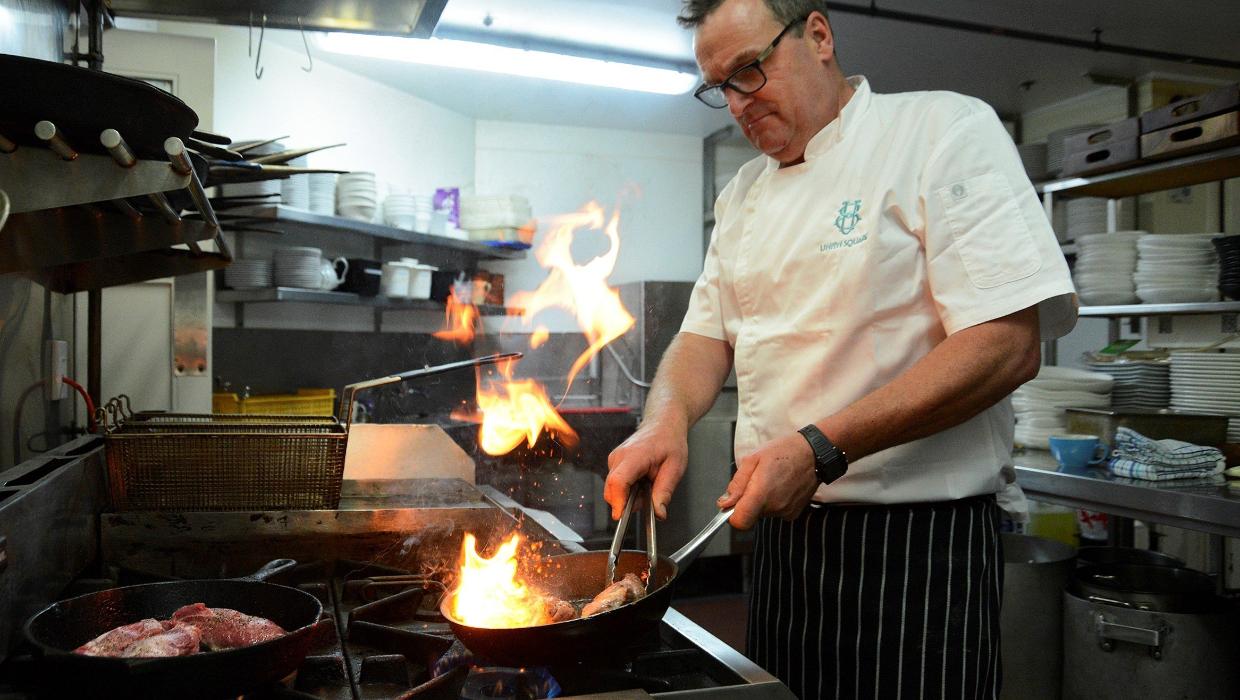Top Stories
New Zealand Secures Michelin Guide to Boost Hospitality Sector

New Zealand’s hospitality sector received a significant boost with the announcement of a new Michelin dining guide, seen as a vital tool for revitalizing the industry post-COVID-19. Tourism Minister Louise Upston and Prime Minister Christopher Luxon revealed that the government has secured a three-year, $6.3 million agreement with Michelin to bring inspectors to the country. This initiative aims to attract more international visitors and support the local tourism industry, which has yet to recover to pre-pandemic levels.
The funding will come from Tourism New Zealand and the international visitor levy, allowing Michelin inspectors to evaluate and assess restaurants across the nation. The announcement was made during a press event at the Auckland University of Technology’s School of Hospitality and Tourism, where the potential impact on the sector was discussed in depth.
Industry Perspectives
The Restaurant Association’s Chief Executive, Marisa Bidois, emphasized that the Michelin Guide represents a culmination of nearly a decade of advocacy from industry stakeholders. “The first conversations were almost 10 years ago,” Bidois stated. “Our businesses are great, and this guide is a chance to showcase that.”
Following the collapse of tourist numbers during the pandemic, Bidois noted that the push for a Michelin Guide gained momentum as operators sought new ways to attract travelers. Although initial plans focus on major cities like Auckland, Wellington, Christchurch, and Queenstown, she hopes to expand the initiative to encompass a wider range of regions in the future.
Bidois also highlighted the guide’s potential to retain skilled hospitality professionals within New Zealand. “Every chef dreams of working at a Michelin-star restaurant abroad. This guide could help keep some of that talent here,” she explained. The industry has faced significant workforce shortages, and the Michelin Guide could play a crucial role in enhancing the sector’s overall appeal to new entrants.
Educational Impact
The announcement has garnered attention within academic circles as well. Vice Chancellor Damon Salesa of AUT expressed optimism about the guide’s influence on students and employers alike. He noted that for aspiring chefs, the Michelin Guide establishes a benchmark for excellence. “We train chefs across all levels and feed that talent into the industry,” Salesa remarked, referencing successful AUT graduates such as Michael Meredith and Simon Gault.
The guide is expected to elevate New Zealand’s culinary reputation on a global scale, fostering a competitive spirit among local chefs who aspire to achieve Michelin star recognition.
Tourism Recovery Strategy
Despite some concerns over the number of restaurant closures in the hospitality sector, Minister Upston highlighted positive employment trends, asserting that more venues have opened this year than closed. Recent data from Centrix indicated that the hospitality industry saw 303 closures in the past year, yet it continues to be a significant source of employment in New Zealand.
Upston also outlined how the funds from the international visitor levy will be utilized, with 80% allocated to demand generation and 20% to supply. As the tourism landscape evolves, this balance will shift to 60:40 to stimulate recovery efforts.
The Michelin Guide’s global brand recognition is anticipated to be a powerful tool in attracting food-focused travelers. “This is about giving people a reason to choose New Zealand over other countries,” Upston stated. “We are competing in a much more crowded marketplace now.”
In a noteworthy comment, Prime Minister Luxon remarked that New Zealand did not coordinate with Australia before inviting Michelin to the country. New Zealand will become the first nation in Oceania to feature a Michelin Guide, as Australia opted out due to the associated costs. “We certainly have the better hospitality sector,” he added, suggesting confidence in New Zealand’s culinary scene.
Tourism New Zealand’s Chief Executive, René de Monchy, shared insights from internal research indicating that the guide could attract an additional 35,000 visitors annually. Notably, 68% of diners surveyed in China indicated that the presence of a Michelin Guide would influence their travel decisions to New Zealand.
As the hospitality sector braces for this significant transformation, the Michelin Guide is expected to serve as a catalyst for growth and revitalization, providing a hopeful outlook for New Zealand’s food and tourism industries.
-

 World3 months ago
World3 months agoTest Your Knowledge: Take the Herald’s Afternoon Quiz Today
-

 Sports3 months ago
Sports3 months agoPM Faces Backlash from Fans During Netball Trophy Ceremony
-

 Lifestyle3 months ago
Lifestyle3 months agoDunedin Designers Win Top Award at Hokonui Fashion Event
-

 Sports3 months ago
Sports3 months agoLiam Lawson Launches New Era for Racing Bulls with Strong Start
-

 Lifestyle3 months ago
Lifestyle3 months agoDisney Fan Reveals Dress Code Tips for Park Visitors
-

 Health3 months ago
Health3 months agoWalking Faster Offers Major Health Benefits for Older Adults
-

 World3 months ago
World3 months agoCoalition Forms to Preserve Māori Wards in Hawke’s Bay
-

 Politics3 months ago
Politics3 months agoScots Rally with Humor and Music to Protest Trump’s Visit
-

 Top Stories3 months ago
Top Stories3 months agoUK and India Finalize Trade Deal to Boost Economic Ties
-

 Entertainment3 months ago
Entertainment3 months agoExperience the Excitement of ‘Chief of War’ in Oʻahu
-

 World3 months ago
World3 months agoHuntly Begins Water Pipe Flushing to Resolve Brown Water Issue
-

 Science3 months ago
Science3 months agoNew Interactive Map Reveals Wairarapa Valley’s Geological Secrets









